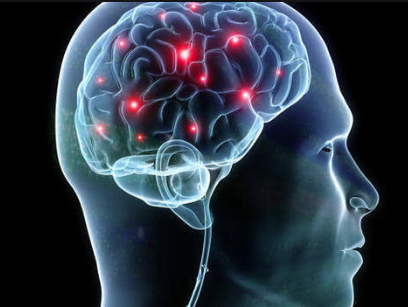Welcome back! Last week, we talked about House Dust Mites and what your poop should look like. If you missed that blog and would like to catch up, click HERE.
This week we switch to a sensitive, yet very serious subject. The consumption of pornography (Porn). We are not going to discuss the morality of porn. What we are going to discuss is the damaging effect porn has on the brain.

First a short lesson on the brain and how it works. The brain is made up of about 100 billion special nerves called neurons. Neurons carry electrical signals back and forth between parts of the brain and out to the rest of the body. Whenever you are learning something new, like how to play the piano, the neurons send a message to your hands to tell them what to do.
Those activated nerve cells start to form connections and those newly-connected neurons form what’s called a “neuronal pathway.” Think of this as a trail in the woods. The more traveled the trail, the wider the trail gets and the more firmly in place it stays. Every time a message travels down a neuronal pathway, the pathway gets stronger.
Eventually, those pathways actually compete for room in the brain. You’ve heard the term “use it or lose it“? That’s actually fairly accurate. The pathways that get used the most become the strongest and they will wipe out lesser-used pathways. Conversely, if one stops consuming porn, the pathways created by the use of porn watching diminish with time.
The chemical responsible for all of this activity is called dopamine.
According to Fight the New Drug, “Dopamine is a neurotransmitter (a chemical released by nerve cells to transmit signals to other nerve cells.) It’s a key player in the part of our brain responsible for reward-motivated behavior.
“Sex, eating tasty food, getting approval (“likes” on social media) all trigger the release of dopamine.
“The more often porn is watched, the more often our brains are flooded with dopamine. Consumers slowly become desensitized to its effects and need more stimulation to “feel the rush” or “get a fix.”
“This means that their reward circuitry can fundamentally change”.
So who is viewing porn? Shockingly, 66% of men and 41% of women view pornography monthly in the United States. Once addicted to viewing porn, it is very difficult to stop.
Pornography use affects the executive functions of the brain, rewiring its structure, and
decreasing gray matter volume (Kim et al., 2017; Kühn & Gallinat, 2014).
So what exactly does that mean? What does “executive functions of the brain” mean? For this answer, we will turn to the University of California San Francisco.

“Executive functions can be divided into organizational and regulatory abilities.
Organization includes gathering information and structuring it for evaluation.
Regulation involves evaluating the available information and modulating your responses to the environment.
Seeing a wonderful dessert in front of you may be tempting to devour, but your executive system might remind you that eating it would conflict with your inner goals, such as losing weight.
- Organization – attention, planning, sequencing, problem-solving, working memory, cognitive flexibility, abstract thinking, rule acquisition, selecting relevant sensory information
- Regulation – initiation of action, self-control, emotional regulation, monitoring internal and external stimuli, initiating and inhibiting context-specific behavior, moral reasoning, decision-making”
“Damage to the executive system often leads to:
- Difficulty organizing
- Difficulty in planning and initiation (getting started)
- Inability to multitask
- Difficulty with verbal fluency
- Trouble planning for the future
- Difficulty processing, storing, and/or retrieving information
- Mood swings
- Lack of concern for people and animals
- Loss of interest in activities
- Socially inappropriate behavior
- Inability to learn from consequences from past actions
- Difficulty with abstract concepts (the inability to make the leap from the symbolic to the real world)
- Unawareness or denial that their behavior is a problem”
As all these changes take place in the brain, marriages can suffer. Dr. Barbara Winter, a Psychologist and Certified Sex Therapist in Boca Raton, Florida, states, “A gradual or marked move into cyberspace has to take away from something, and it typically is the attachment in the marriage and/or the family. This detachment results in a reach for something else, such as porn, to soothe or balance one’s emotional state.” She says that at this point, “The marriage becomes neglected. Partners become lonely, isolated and betrayed.“

The good news is this: if one enters into treatment and abstains from viewing porn, the brain can eventually return back to baseline (normal for that individual). The problem with this is that the user’s brain has been rewired, and they rarely see that there is, in fact, a problem with their usage.
The long term damage to relationships may be a bigger challenge. Even if the user can recognize that their use of porn is damaging to their brain, going through treatment will only be half the equation. The other half will be rebuilding trust and passion with their significant other. Couples counseling will be an important step to this process.
Gary Wilson gives a great TED talk about porn addiction. This video runs approximately 16 minutes. Take the time to watch it. Very informative. People are being misdiagnosed with OCD, ADD, Social Anxiety, Poor memory, and other disorders, when in fact, they have a porn addiction (which is different than a sex addiction). Watch and see what I mean:
If you found this blog to be informative or just a relaxing way to waste time, please do me a favor and share it on your Facebook page? To share, just click on the Facebook icon located right below this paragraph. Much appreciated!

Incredible article. This is truly an amazing content. Quite informative for sure. Thank you so much for sharing!
Thanks for writing this informative article
great article. thank you for sharing your article.